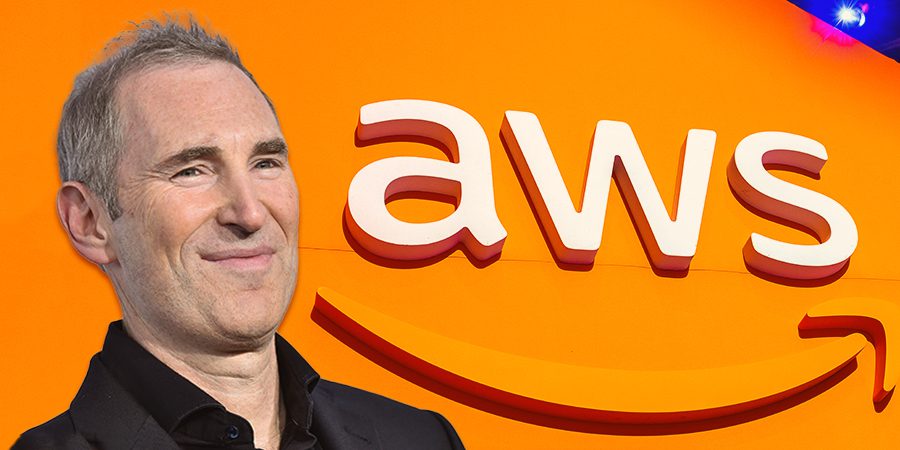In this article, we’ll look at the reasons behind AWS’s massive feature release, Amazon CEO Andy Jassy’s focus on cost optimization, and the company’s chip innovation as it navigates through a challenging economic climate.
Key Takeaways:
- AWS launched 3,300 new features and services in 2022.
- Amazon CEO, Andy Jassy, emphasizes cost optimization for AWS customers.
- AWS focuses on chip development, particularly for machine learning applications.
- AWS still sees significant potential for growth in the cloud computing market.
AWS: A Whirlwind of New Features
2022 was a remarkable year for AWS, as they launched an astounding 3,300 new features and services across their cloud hyperscaler platform.
That’s an average of nine new tools every single day!
This release is just the latest evidence of how difficult it can be to keep up with the rapid pace of new offerings from just one software and services provider, in an already rapidly evolving technology environment.
Amazon CEO, Andy Jassy, acknowledged the sheer volume of new features in his annual letter to shareholders, stating that the release was indicative of the company’s unwavering commitment to innovation and customer satisfaction.
As businesses face evolving demands, AWS aims to lead the way in technological progress, helping companies stay adaptable and competitive in today’s rapid-paced environment.
Cost Optimization: Jassy’s Top Priority
In his letter, Jassy also addressed the current economic climate, describing it as “one of the harder macroeconomic years in recent memory.”
In response to these challenges, he emphasized that AWS sales and support teams are dedicating much of their time to help customers optimize their AWS spending.
Jassy believes that cost optimization is crucial for businesses to weather the economic uncertainties that lie ahead.
According to him, AWS customers are not simply cutting costs but rather optimizing their spending to allocate resources to emerging and inventive new customer experiences they have planned.
By adopting a customer-focused, long-term approach, Jassy is confident that this strategy will benefit both customers and AWS in the long run.
Chip Innovation: Powering the Future of AWS
In his letter, Jassy highlighted one particular area of innovation that could have a significant impact on the future of AWS: chip development.
He talked about how well the Graviton chip, based on Arm technology, performed in AWS.
He also pointed out the increasing need for cheaper GPUs, which are often used in machine learning.
AWS began investing in specialized chips for machine learning training and inference several years ago, and in 2022 they delivered their first training chip, dubbed “Trainium.”
Jassy said that Trainium-based instances are faster than GPU-based ones, and they cost less too.
He mentioned that many companies are still in the training phase, but when they move to production, they’ll see that the cost is mostly in inference.
This is because models are trained periodically, while inferences happen all the time when applications are used.
AWS released “Inferentia” chips in 2019, which helped companies such as Amazon save more than $100 million in costs. The latest version, “Inferentia2,” has four times more speed and ten times less delay compared to the original.
Jassy thinks that as machine learning continues to grow rapidly, AWS’s training and inference chips will enable customers to do more at a much lower cost.
He also stressed that they’re far from done innovating in this area, and that this long-term investment should prove beneficial for both customers and AWS.
AWS Growth: A Promising Outlook
Despite facing short-term headwinds that may temporarily soften the growth rate of AWS, Jassy remains optimistic about the company’s future prospects.
He points out that the fundamentals they’re observing in AWS are strong, including robust pipelines for new customers and active migrations.
Jassy also highlighted the Jassy also highlighted the company’s strategic approach to address the growing needs of various industry sectors.
He mentioned that AWS is uniquely positioned to deliver customized solutions for vertical markets such as financial services, healthcare, manufacturing, retail, and media & entertainment, among others.
By focusing on these specific industries, AWS can tailor its offerings to address the unique challenges and opportunities that each sector presents.
Furthermore, Jassy emphasized the importance of continuously expanding AWS’s global infrastructure, noting that the company currently has 81 Availability Zones spread across 25 geographical regions.
With the goal of serving customers around the world, AWS plans to launch at least 24 more Availability Zones and six additional regions in the coming years.
The company’s significant investment in its global infrastructure, combined with the accelerated pace of innovation, not only enhances AWS’s ability to deliver a robust suite of cloud services but also helps attract new customers and retain existing ones.
Conclusion
Despite facing economic uncertainties and a rapidly evolving technology landscape, AWS remains committed to staying ahead of the curve by focusing on cost optimization, chip innovation, and expanding its global infrastructure.
The company’s ability to deliver an ever-growing list of features and services across various industries positions AWS well for sustained growth and success in the years to come.
 Sections of this topic
Sections of this topic
















